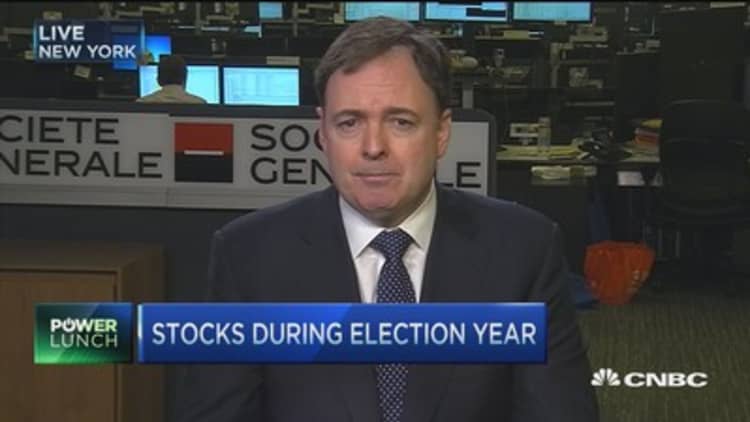
The end of President Barack Obama's two-term presidency will mark an era of new leadership for the country, but could the 2016 elections also be the start of a bear market?
Larry McDonald, head of U.S. macro strategy at Societe Generale told CNBC's "Power Lunch" the probability of a bear market in 2016 is at 30 percent, his firm's worst such projection since 2007.
McDonald said Monday the high probability can be attributed to the global breakdown of credit, and he added that the U.S. specifically is "seeing disruptions in the credit markets that could lead to weakening the equity markets."
McDonald said disruption in the stock market following two-term presidencies in the U.S. is actually a historical pattern across both political parties.
"Sometimes it comes from political elements that are inside the administration, and a lot of times it's because of economic breakdowns, but at the end of the day, over the last 50 years during the end of a two-term presidency, we've got an average decline of say 28 to 30 percent," McDonald said.
McDonald explained that the disruption typically happens in the last 1½ to two years of a president's second term because of the amount of uncertainty that voters and investors face.
"We don't know who our next president's going to be," McDonald said, adding that "credit market excesses could alter the path here and create a problem."


